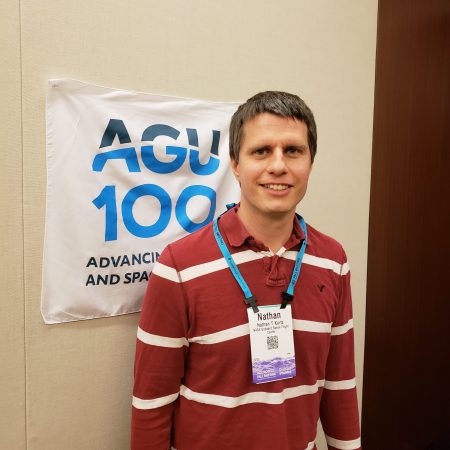Refine
Date Range Clear
Recorded by Clear
Keywords Clear
- #AGU100 176
- mars 176
- Future 176
- discovery 60
- #AGU 174
- NASA 64
- #womeninscience 34
- Advice 27
- Collaboration 23
- 401 more
Partnerships Clear
- No matching terms.
Organizations Clear
- American Geophysical Union 41
- National Aeronautics and Space Administration 9
- The American Geophysical Union 4
- American Geopysical Union 3
- NASA 2
- 13 more
Places Clear
- Washington DC 170
- AGU 2018 Fall Meeting 169
- AGU Fall Meeting Program Commitee 3
- Leadership Development Commitee 2
- Wasshington DC 2
- 5 more
Languages Clear
- No matching terms.
Initiatives Clear
- No matching terms.
For Jim Pizzuto, a career in science was never the plan. His father was a landscape painter, and he grew up surrounded by art and the majestic landscape paintings that his father produced. By the time he entered college, he...
The next time you see a young kid skateboarding through the neighborhood, possibly listening to punk rock on their earbuds, remember that one day that kid could be your local science professor. Doug Jerolmack’s sturdy voice and love of experimenting...
After one spends 50 years with the same organization, what’s next? That’s the question Dave Mao is attempting to answer after a highly-decorated career at the Carnegie Institution for Science. Born in Shangai and raised in Taiwan, Mao came to...
Glenn Orton is so deep in Jupiter mission information that he gets envious when he’s not involved in a space project studying the gas giant. The senior research scientist at the NASA Jet Propulsion Laboratory studies the composition and structure...
David Young, Director of Science at NASA Langley Research Center, discusses his life's work studying the earth's climate. After an early interest in astrophysics, he focused in on earth science due to his desire to do research to help humans....
Catherine McCammon, staff scientist at Bayerisches Geoinstitut, University of Bayreuth, Germany and longtime AGU volunteer discusses collaboration and explains how she has found that the “the whole is great than the sum of its parts,” is truly an accurate statement....
Zachary Wolff talks about how his path to studying and creating models as a graduate student at UC Irvine was not straightforward: he first considered medicine and meteorology before working on a CICE radiation study and discovering his interest. While...
Emily Wolin is almost singe-handedly trying to upgrade Myanmar’s national seismic network. As a student, Emily saw the Mount Saint Helens eruption. Today, she helps scientists in Myanmar prepare their country for the aftermath of the next hurricanes to come...
Lori Glaze, Acting Director of the Planetary Science Division at NASA Headquarters, works with everything from understanding asteroid trajectories and material make up to the InSight mission which recently landed a rover on Mars. It’s no exaggeration to say Lori...
Sprites are electrical discharges like lightning, but up in the middle atmosphere. Having only been in the scientific literature since the 1990s, sprites captured Geoff McHarg’s imagination while observing the Aurora in Alaska. Perfect for a guy whose view of...
This Sao Paolo, Brazil based senior space research scientist is best known for explaining geomagnetic storms. In 2017, he received an AGU prize for “cutting-edge work” on space weather and processes. He remembers being a UC Berkeley graduate student in...
It took 21 years for Trevor McDougall to leave Australia, but when he did, he was on a plane headed to the University of Cambridge and a masters and Ph.D. in Oceanography. Besides the life-changing event of going from one...
While many of the interviews at the conference were with experienced professionals with a career spanning several decades, this interview is with a young up-and-coming PhD student who traveled all the way from the Philippines to attend her first AGU...
Erin Robinson is the Executive Director of the Earth Science Information Partners (ESIP). She knew from early on that she was interested in science and her field of remote sensing, from good science teachers in middle and high school to...
Miguel Román, a Physical researcher Scientist at NASA's Goddard Space Flight Center, shares his journey from his childhood in San Juan, Puerto Rico to NASA. Seeing the impacts of hurricanes and urban growth where he grew up, and the practical...
Bidyut Bikash Goswami has found that people are very interested in his field of climate science and meteorology, even if they don’t fully understand it at first. He notes that people tend to assume that climate science means climate change...
How did Biogeoscience become a recognized field of study, with its own journal and sections at AGU? What obstacles did its organizers have to overcome in order to make it a viable field and a welcome presence at AGU? In...
Louise Prockter knows a thing or two about logistics and planning. When the first image of the unseen hemisphere of Mercury popped onto the screen during a flyby mission, her first thought was, "oh thank God, it's in the middle...
Sandra Cauffman was told growing up in Costa Rica that she couldn’t be an electrical engineer because she was a woman. Decades into a career which has largely involved getting her hands dirty building instruments to fix on spacecraft, the...
In the mid-1990s, the town of Libby, MT, discovered they had a serious problem. The small town of fewer than 3000 people had reported over 300 fatalities from asbestos contamination. Enter Aubrey Miller, from the EPA, and Geoff Plumlee, from...
James Butler has studied atmospheric chemistry, ozone depletion for over thirty years. Now, as the Director of NOAA’s global monitoring, he helps direct research into the hole in the ozone layer and climate change. He knows firsthand that we have...
Kenneth Jucks, Program Manager for the Upper Atmosphere Research Program at NASA Headquarters, has gone from launching weather balloons, what he calls a “poor man’s satellite” to take measurements up to 25 miles above the Earth’s surface, to managing five...
Richard Johnson is an AGU member who has been coming to Fall Meeting for years. He discusses some of the keynotes he’s attended in recent years, like those by Jerry Brown, Elon Musk, and Dan Rather. A sci-fi enthusiast, Richard...
Krystal Yhap’s interest in urban water resource management was sparked by the conversations around water safety in Flint, MI. She’s now a graduate assistant at the University of Maryland studying the water system in San Francisco. She talks about her...
The potential downside of a career in always seeking discoveries is that it may stunt the development of your confidence. Even as someone who walked into NASA, living the dream in his mind, Nathan Kurtz experiences that downside, politely calling...
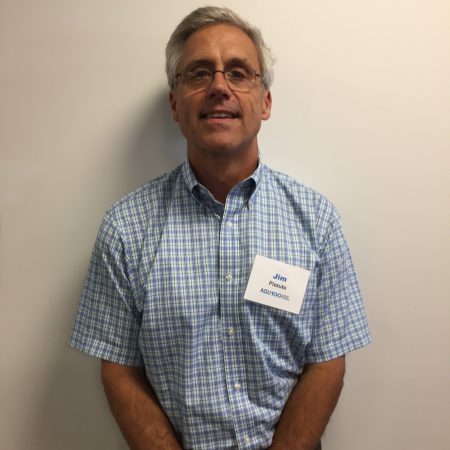
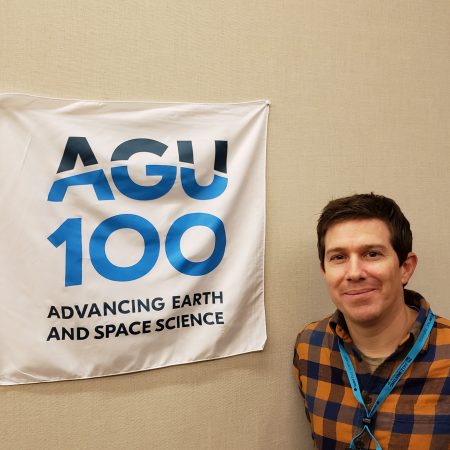
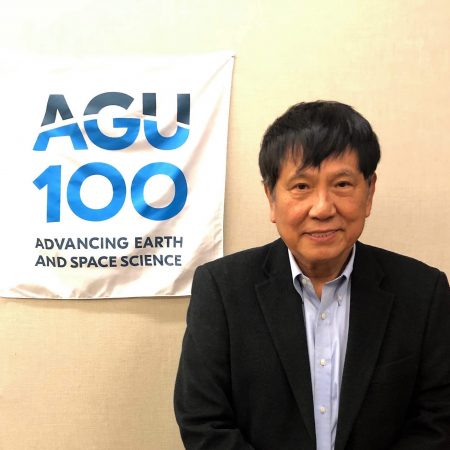


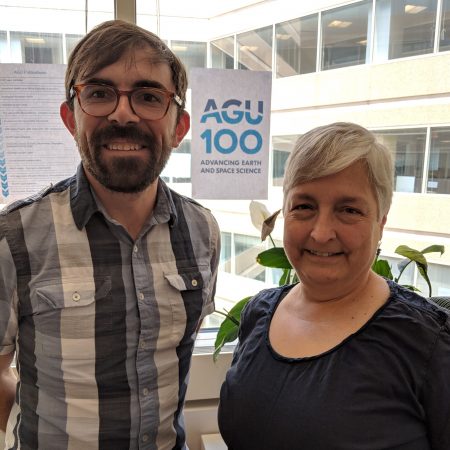
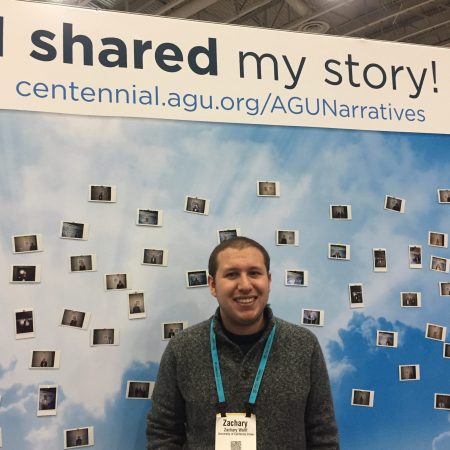
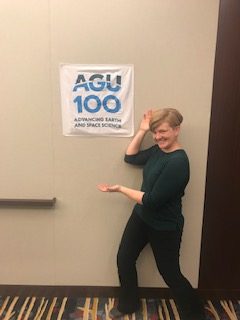


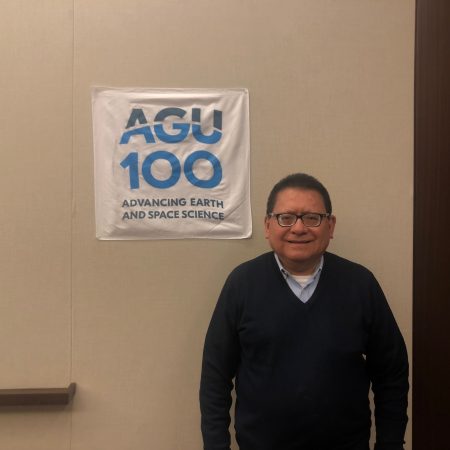
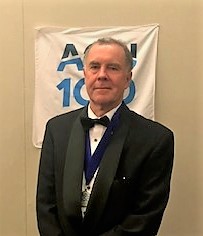
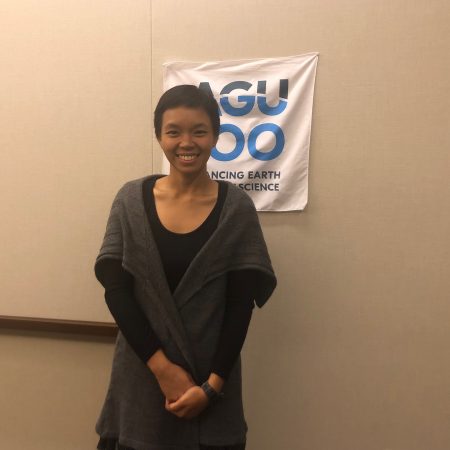


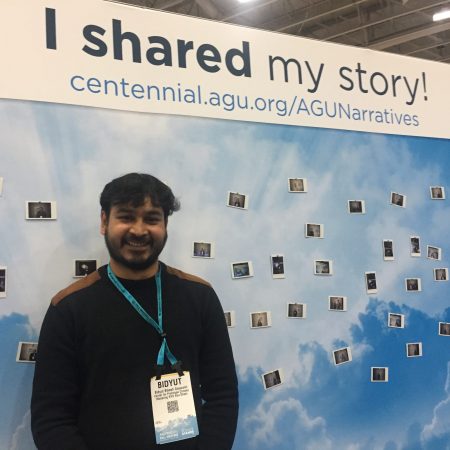



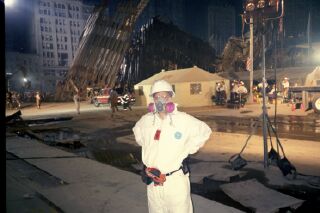

![“[The Montreal Protocol] is one of the few areas where the international community really came together." an interview with Kenneth Jucks](https://archive.storycorps.org/uploads/2019/01/181210_Jucks-1-450x450.jpg)
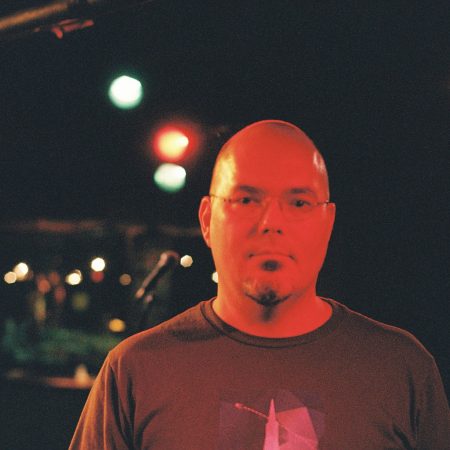
![“I'd love to see more collaboration happen and [it is] integral in terms of science working in the future.” An interview with Krystal Yhap](https://archive.storycorps.org/uploads/2019/07/Headshot-KYhap-450x450.jpg)
